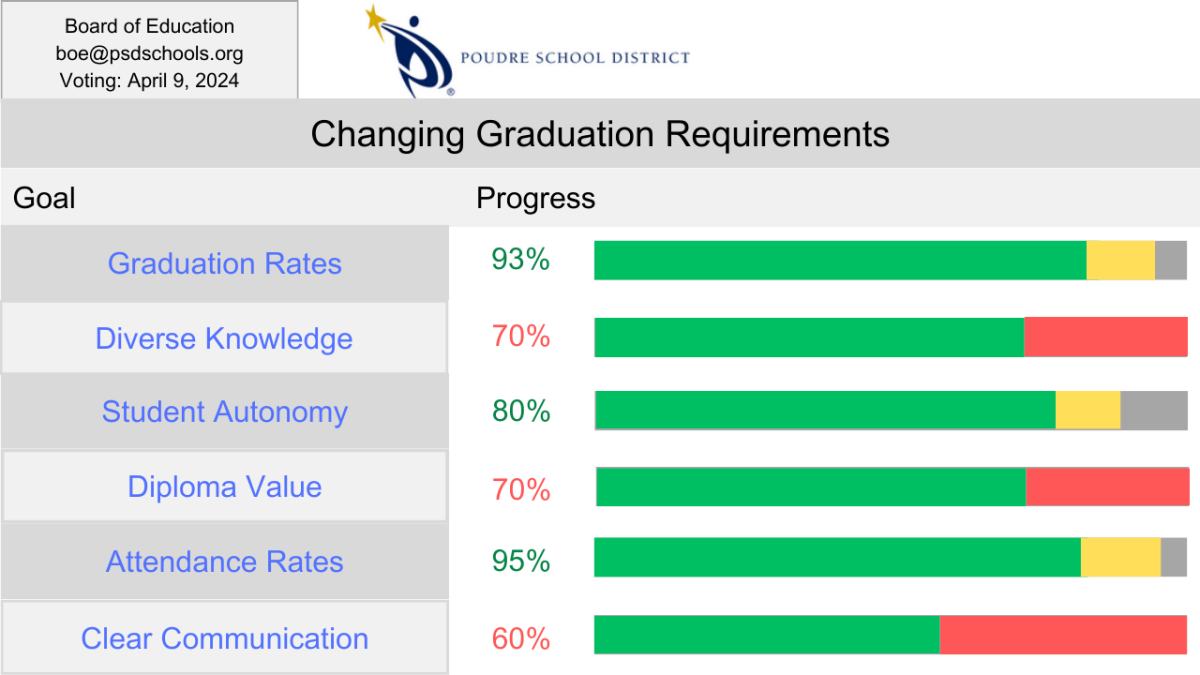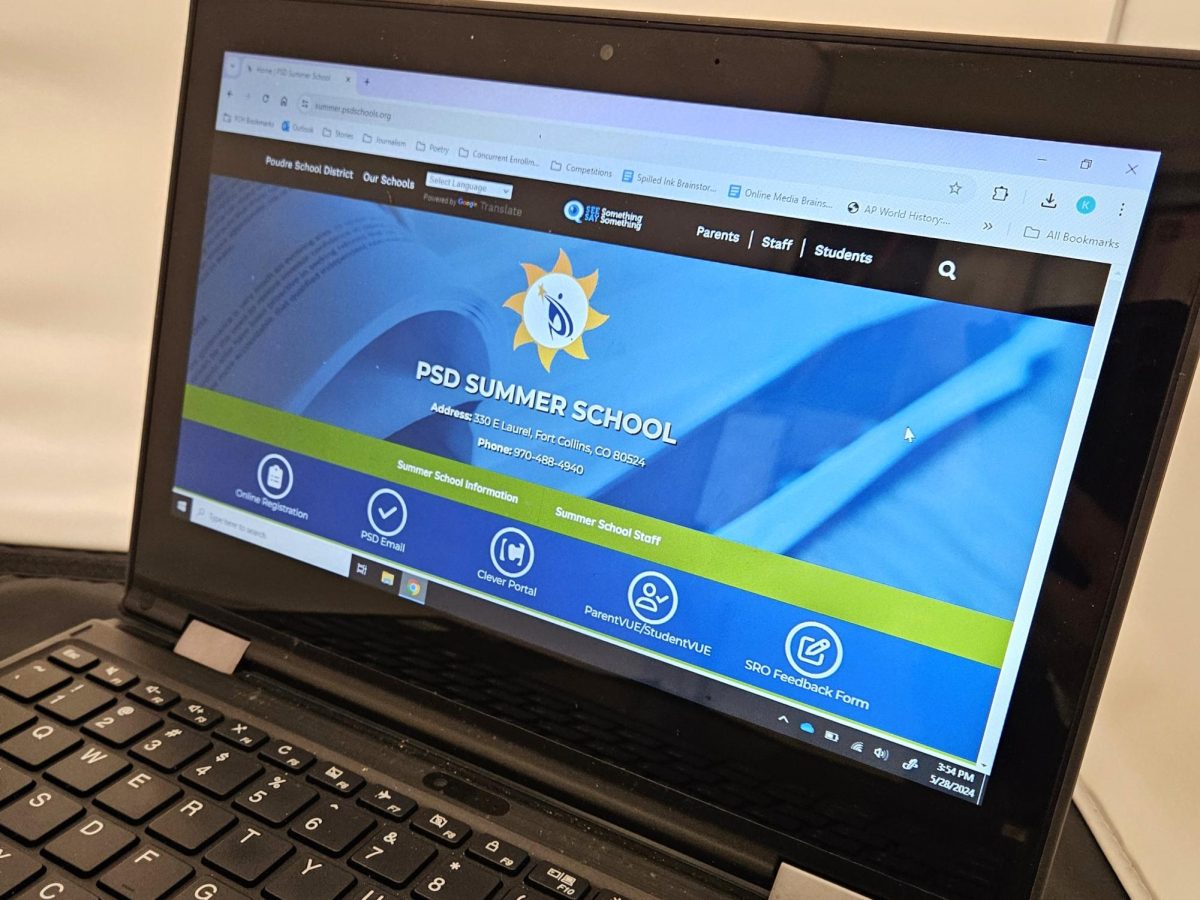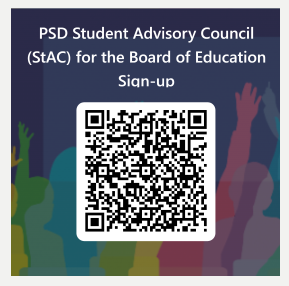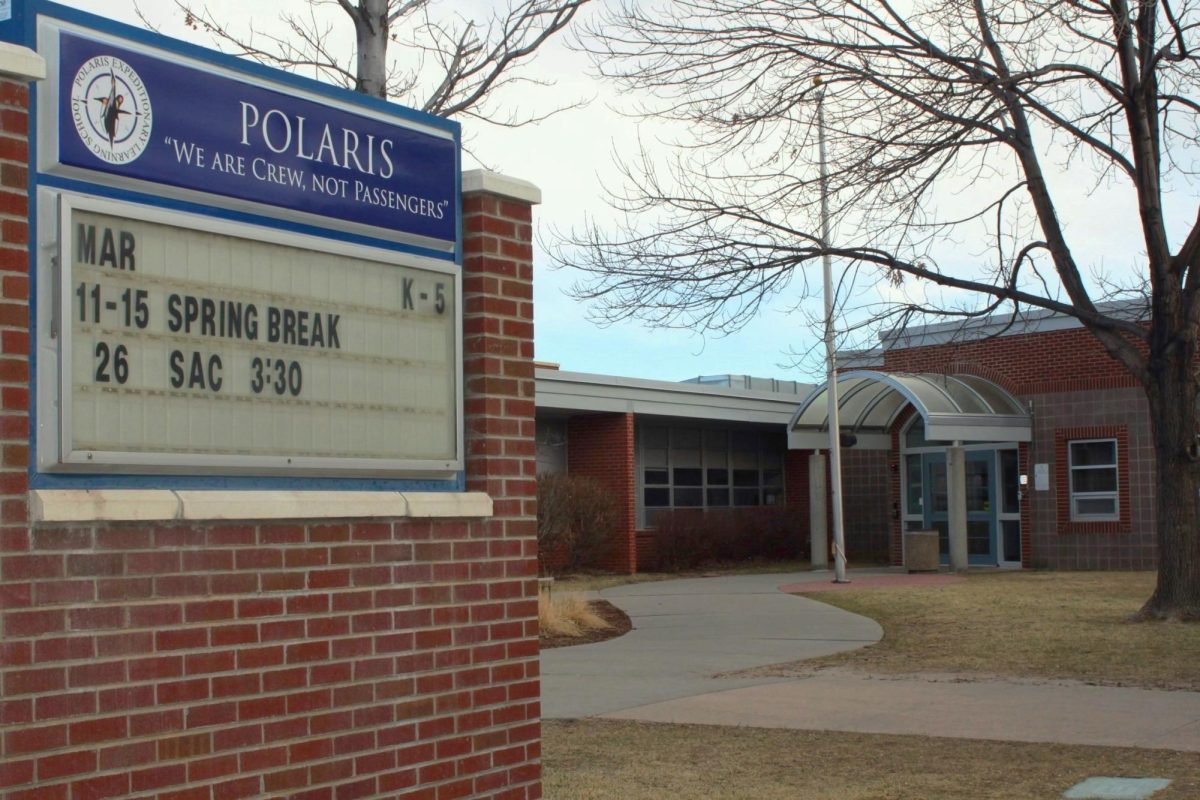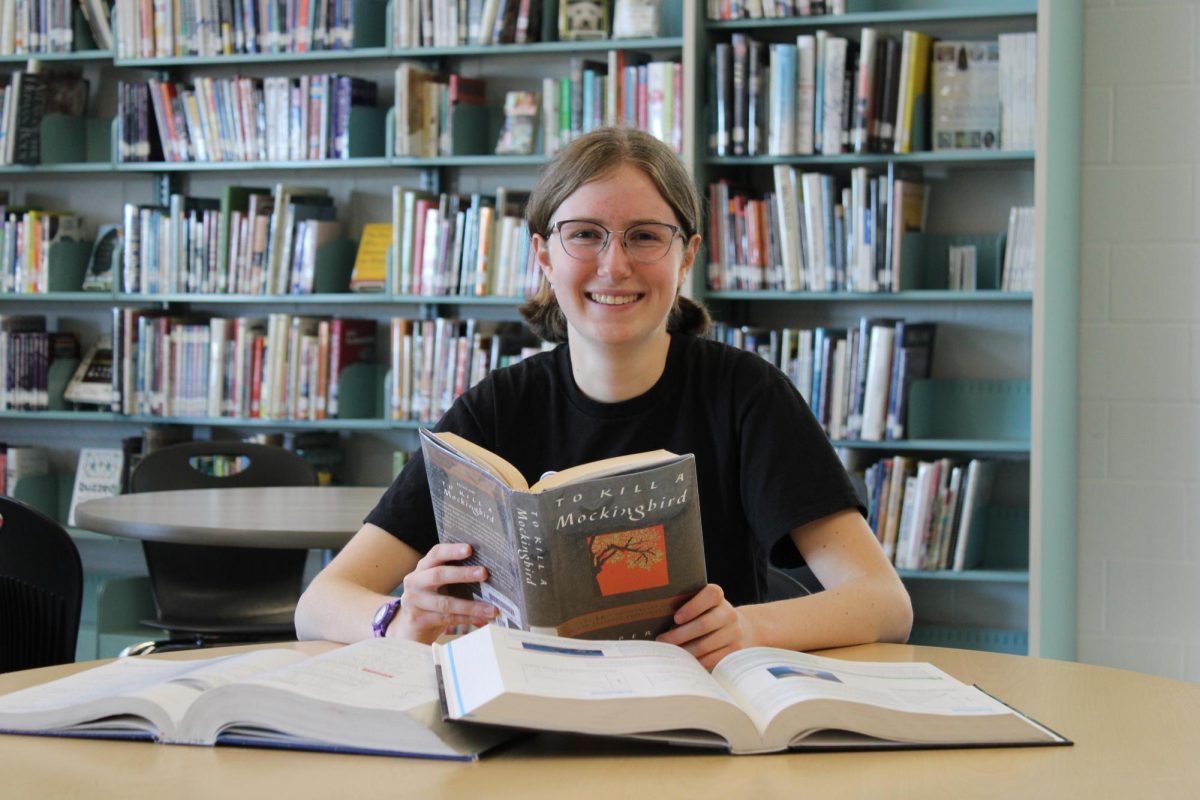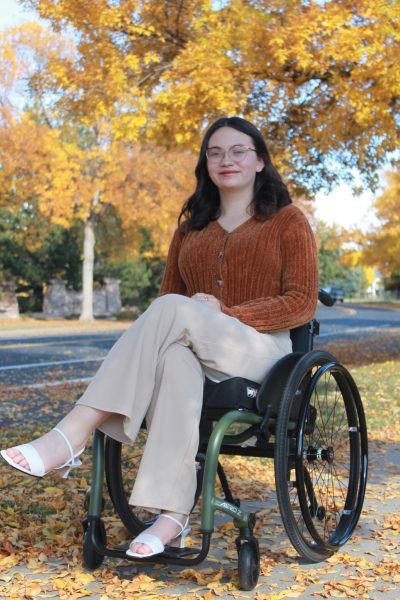Every year, hundreds of students in brightly colored robes walk across a stage at Canvas Stadium. Each one is given a diploma, representing their accomplishments over the past four years. After moving their tassels from left to right, PSD graduates take their first steps into the adult world.
If current rates hold steady, only 87% of PSD students will reach the milestone of high school graduation. This is lower than comparable Colorado school districts, such as Cherry Creek, Boulder Valley, and St. Vrain.
“They’re all excellent school districts with great reputations just like Poudre School District,” Dwanye Schmitz, PSD chief institutional effectiveness officer, said. “They’re about our size or bigger, and they have student demographics that are actually similar to ours.”
However, these peer districts have graduation rates ranging from 90-92%. PSD is looking to fill the 5% gap by adjusting graduation requirements.
The Board of Education will make a decision about the cabinet’s recommendation and vote at their April 9 meeting. This decision includes the adoption of new graduation requirements, and several other key policy components.
“That doesn’t give people the time to express their feelings and speak up about it so that there can be a debate, not just ‘Here’s the list and we’re voting on it,’” Sophomore Sabina Frakes said. “Everybody has valuable opinions that won’t be able to be shared if there’s such a tight space between when it got announced and when its being voted for.”
Public feedback, collected throughout this process, plays a substantial role in these decisions. While community members have just under a week remaining to prepare, there is still an opportunity to speak at the BOE meeting. Speakers are required to sign up ahead of time, and there are typically 40 slots available. The sign up will be released today or tomorrow, linked to the BOE calendar. Each speaker is given approximately two minutes.
“Personal stories are really helpful, especially from students. How would having 20 extra [elective] credits help you? How would that improve your academic experience?” Board of Education Vice President Jessica Zamora said. “On the other hand, if not requiring humanities or language, if you feel that negatively impacts your educational experience, share your why.”
Currently, to graduate, every student must earn 240 credits of high school coursework. This total is divided into 13 categories, ranging from mathematics to humanities. The proposal remains at 240 total credits, but students would have fewer required subjects.
“When I was going through school, school was really geared for kids to go to college and that was the option. I didn’t have a lot of the options that students have today, or that we’re trying to create,” Zamora said. “We pendulum-swung towards college, and this is really just a correction towards making sure we’re providing a great educational opportunity for anyone.”
The board is considering a shift in which world language and culture (10 credits), humanities (5 credits), and economics (5 credits) will remain strongly recommended, but would no longer be required content areas. Wellness would also decrease from 15 credits to 10. The electives bucket—currently at 65 credits—would be increased to 85.
Under a second option, the board may approve the above changes and remove an additional 5 credits from wellness and fine/applied art requirements. The total number of open elective credits would increase to 95.
Both options make students responsible for specific course choices.
“They’re not going to have such a variety of knowledge and information. It’s not going to set everybody up as well, which is really unfortunate,” Frakes said. “Even if there’s an increase in graduation, there will potentially be a decrease in valuable knowledge.”
The decrease in required content areas would go into effect for the class of 2026 and beyond, according to an email from PSD sent March 22.
While a 10 credit World History requirement is included in the email, that change would not apply until the class of 2029.
“What we are considering right now is the current 7th graders would be the ones who would have to take that requirement,” PSD Director of Curriculum and Instruction John Passantino said. “We know 8th graders are already planning their freshman year, and the new graduation requirements are currently slated for the class of 2026. We know they’ve already built their schedules and their pathways, without being informed by that. We’re not going to shake everybody up and make them complete that.”
Current 8th-10th graders would only be affected by a decrease in content areas to meet, and the increase in required electives. The move from 65 to 85 elective credits would give students more choice in their schedules, according to PSD.
With more scheduling freedom, the district hopes to promote more meaningful learning.
“We believe that student engagement is the core thing that determines whether a student is going to graduate or not,” Schmitz said. “One of the big theories that we’re operating under is that if we make space in a student’s schedule so that they can go deeper exploring whatever their interest and passion is or they have their future sights set on, then they’ll be more engaged. They’ll persist when things are challenging.”
In addition to meaningful electives, PSD wants to work toward making required courses more impactful for students. Personal Financial Literacy was originally slated to be removed from requirements entirely, but feedback from a variety of groups stressed the importance of this class. The proposal includes PFL as a 5 credit requirement, but this course may be different in the future.
“We want to look at Personal Financial Literacy, which is back on the board. What are students learning in that?” Passantino said. “It’s not just taking the course, but what is going to really help a student be prepared to see the world in an economic/financial state? It’s super important, but it’s also got to be relevant to the world that students are graduating into now.”
Though refined curricula are still in early stages, the district expects adjusted requirements to increase attendance rates.
Student engagement has been found to improve attendance, which has dropped since the return to in-person school. While pre-COVID attendance was around 93%, the current rate is 89%, and the district is working toward a goal of 95% attendance.
“It really is trying to create a more engaging environment that’s more aligned with student interests, that is safe, that feels safe to be in, so that we can get the attendance rates up,” Passantino said. “You can’t learn if you don’t come to school.”
The cabinet estimates that making these adjustments could increase the graduation rate by 5-6% in upcoming years. This would close the gap between PSD and peer districts.
If the BOE approves the new graduation requirements, another major decision would be the timeline for these requirements to take effect. Despite PSD communications stating these requirements would begin with the class of 2026, this timeline is not finalized. The class of 2026 is the earliest class who would be subject to the change, but there’s an opportunity for this timeline to be delayed.
“It’s not written into the policy, although it could be,” Schmitz said. “Truthfully, the final tweaks to the policy they’re going to vote on are still being made.”
If students aren’t able to make the meeting on April 9, they can contact the BOE at [email protected].
Previous educational experience, familial education, income levels, and a myriad of other factors give each student a unique relationship with graduation. Nothing has been officially decided, so community input can still influence the acceptance of this policy, and the way it would be implemented.
“I have experienced the value of kids becoming bilingual, kids getting deep experiences in our AP art programming, students having opportunities in our band and music programs, going deep in math even beyond calculus in our schools, the p-tech program, and the nursing program,” Schmitz said. “The benefit for students: economic mobility, helping people find their pathway, launch into life and be highly successful. I believe these graduation requirement changes support more students in pursuing that. I believe in students. I believe in families. They have more agency to craft their education and their future. That’s my greatest hope. ”


